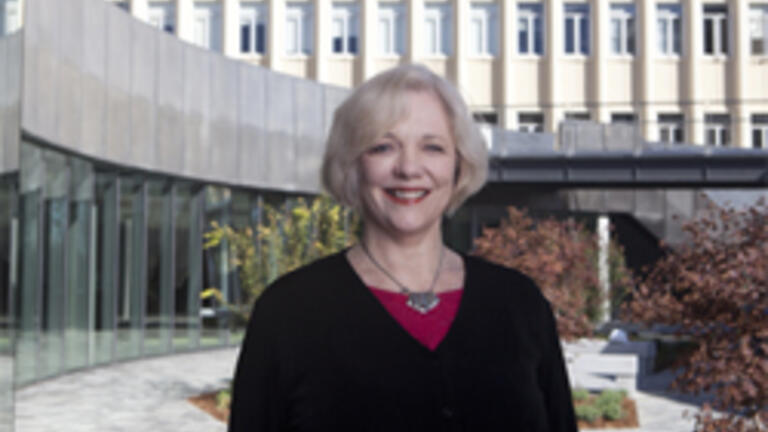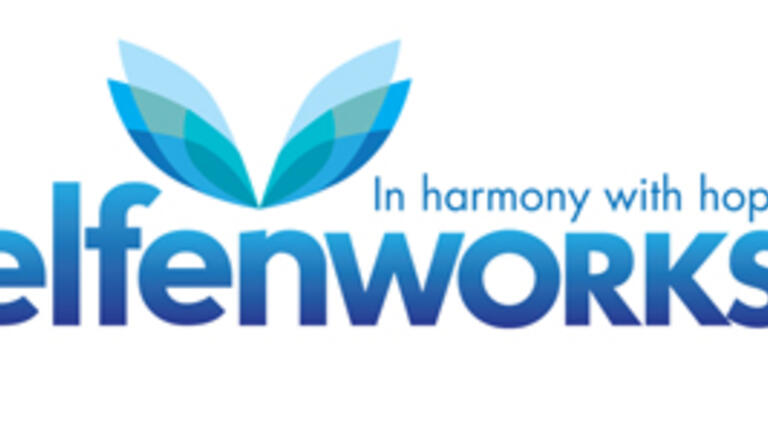
Anyone Can Become a Social Entrepreneur

Can a leadership class teach MBAs social responsibility, or is this a quality students must seek to learn themselves? For Professor Kathy Kane, learning about leadership is not just about fulfilling educational requirements – it’s about inspiration, responsibility and engagement. “I want the School of Management to cultivate socially engaged leaders, not managers,” she said. “So much of what we do at USF is about social entrepreneurship. Or at least about being socially entrepreneurial inside of their own companies. But a lot of people don’t understand what that is.”
During their time in the USF MBA Program, students are fully immersed in social entrepreneurship and brush shoulders with people who do this professionally. In Dr. Kane’s Leadership class, the students organize semester-long projects in the San Francisco community, aimed at creating grassroots social change in small and effective ways. Dr. Kane also took the entire class to the annual Elfenworks Foundation “In Harmony with Hope” Awards Night in early October, which pays tribute to select individuals who are working to make a difference through substantive, meaningful and innovative social change, ranging from issues like healthcare and housing to child welfare and gang intervention.
“These are first-year MBA students,” said Professor Kane. “I think it’s important to get them involved from the beginning of their program onwards, so I try to think of ways to provide a rich first-semester experience. When the opportunity presented itself to attend the Elfenworks Awards Night, it was serendipitous. I have a class full of people who are so interested in social change, and here’s this perfect evening of just that, on a class-night to boot.”
“It was a very inspiring evening,” said Ryan Lin, student in Dr. Kane’s Leadership class. “It highlighted the work that social entrepreneurs do every day to make the world a better place. It is also in direct alignment with USF’s motto of ‘Change the World from Here’ and motivated us to embrace the challenge of inspiring youth for our servant leadership project.”
Fellow student Beth Guido agreed with Lin that the evening was inspirational. “Here in Silicon Valley, everyone seems to be so focused on the bottom line,” she said. “But the awards night reminded me that entrepreneurship can be leveraged to give back to communities as well.”
Michael Palatta saw true examples of this kind of real-world social entrepreneurship during the awards evening, too. “I spoke to three of the most impactful social entrepreneurs in the country,” he said. “In class, we learn about authentic leadership and how a person’s life story forges their career path, and it was a true inspiration to hear how adversity had affected each of these entrepreneurs’ drive to create the nonprofits they run today.”
The class’s service leadership project requires students to make a difference in an organization or a community, and to create a complete, tangible project from beginning to end. Ryan Lin has teamed up with classmates Raquel Toruno, Maria Solis and Bonnie Bain to start a project called NETSOM, which aims to educate and empower high-school students to be strong leaders in their communities through the use of role play, videos and informative workshops. They are currently working with the Abraham Lincoln High School in San Francisco, and hope to incorporate their project into the regular curriculum. “We seek to educate [the students] on the importance of respect and responsibility for one another in the community, and to foster social reciprocity,” the NETSOM team states in their official project proposal. Their approach is evidence-based, using extensive research, statistics, case studies and personal experiences to determine the best approach for reaching high-school-aged students.

The variety of service projects in Dr. Kane’s class is extensive. The students in a team called Benevolence SF organized an Entrepreneurship 101 workshop for high school-aged students, teaching them the fundamentals of business and entrepreneurship and helping them develop thoughtful, responsible decision-making skills. Beth Guido, Quyen Tu, Michael Palatta and Ricky Wong formed the OmniTrend team, and they are helping the St. Charles School in San Francisco’s Mission neighborhood to build a vegetable garden for the students. “St. Charles is a school for low-income students,” Michael Palatta said. “The project’s legacy is that students will be given a section of the garden upon entering Kindergarten, and they can nourish their area and watch it grow throughout their years at St. Charles, until they graduate from 8th grade.”
“The garden will not only provide students with healthy food to supplement the school’s nutrition program, but will also aid the science department in their curriculum,” Beth Guido said. “We’re also kick starting an after-school program to help ensure that the garden continues to be maintained after our involvement. We want the students to use and enjoy the garden year-round.”
Quyen Tu agreed with her teammate. “Not only do we want to contribute to the community, but we want to instill a program that lives beyond project completion,” she said. “We’re building a garden that students and staff can keep developing for years to come. The garden is a representation of the education of the mind, body and soul. It will be a sanctuary for students and staff, and we will utilize the building of the garden as a mechanism to mobilize the school, alumni and community to come together.”
On October 30th, Elfenworks founder and CEO Lauren Speeth visited Dr. Kane’s class. She spoke to the students about her experience with former president Jimmy Carter and the Carter Center, and her philosophy of giving back. “Lauren is extremely dedicated to social justice issues,” said Professor Kane. “I think she inspired the students to think of business as a way to improve society for everyone.” Palatta said, “It was the perfect culmination to this semester’s social justice experiences. Lauren Speeth reiterated her motto to us, which had played a large role during the awards night as well: never underestimate your ripple. This is a phrase I say to myself every day when we’re training people.”
Professor Kane hopes her students not only understand but internalize her message.
Students need to know that anyone can be a social entrepreneur,” Dr. Kane said. “And I really mean people from all walks of life. Anyone can make a life out of this, if they want to. You don’t need money to make a difference; you don’t even need a background in nonprofit. I hope the Elfenworks Awards helped solidify this knowledge for them.
Additionally, events like the Elfenworks Awards Night provide the students with unparalleled networking opportunities, she said. The students had ample time to mingle with award nominees, event attendees and Elfenworks activists. “Meeting the people from Elfenworks gives them a real notion of what a foundation can do,” she said. “Especially when a foundation takes on a variety of things that are achieving social change through educational methods, which is what they’re doing in their servant leadership projects. And meeting the award nominees and other social activists who attended the ceremony, that solidifies for them the huge impact a mere individual can have.”
By Inge Lamboo